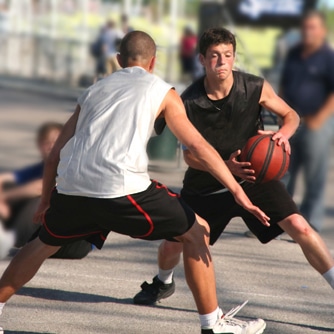Osteoporosis affects more than 200 million people worldwide, being more common in women, but men also develop it—usually after age 65. Without intervention, 1 in 5 men develop fractures relating to osteoporosis in older age. Mattias Lorentzon, from the University of Gothenburg (Sweden), and colleagues evaluated 833 men who were 18- to 20-years old at the start of the study. The researchers measured the participants’ bone mass and collected information about their exercise habits. Five years later the recruits came back to the lab to report activity levels and get bone scans again. The researchers discovered that men who both started off with a high level of load-bearing exercise at the study’s start and those who stepped up the pace had a better chance at building bone than men who remained sedentary or those who slacked off during the five year period. They found that for every hour of increased physical activity during the five-year study, the men in this study gained bone mass. Subjects who participated in load-bearing sports for four hours a week or more showed an increase in hip bone density of 1.3%, whereas those men who remained sedentary during the five year study lost about 2.1% of bone mass in the hip. Sports that involve jumping or fast starts and stops and increase the load put on the body’s bones seemed most associated with the enhanced protection for men, with basketball and volleyball seemed to be the best kinds of activities for building bone mass, followed by soccer and tennis. Such load-bearing sports seem to push the body to form new bone tissue. Activities that do not put an increased load on the bones, like swimming and bicycling did not seem associated with the building of bigger bones or more bone mass, even though they offer other health benefits. The study authors conclude that: “increased physical activity was related to an advantageous development of [areal bone mineral density], trabecular [bone mineral density] and cortical bone size, indicating that exercise is important in optimizing peak bone mass in young men.”
Load-Bearing Exercise Benefits Men’s Bone Health
Martin Nilsson, Claes Ohlsson, Anders Odén, Dan Mellstrom, Mattias Lorentzon. “Increased physical activity is associated with enhanced development of peak bone mass in men: A five-year longitudinal study.” Journal of Bone and Mineral Research, Volume 27, Issue 5, May 2012, Pages: 1206–1214.




